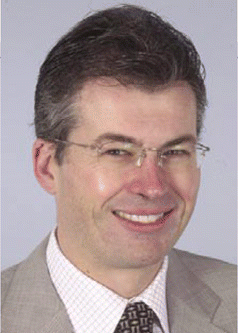The 1986 Emergency Medical Treatment and Active Labor Act, or EMTALA, mandated that hospitals offering emergency services must ensure that all patients receive equivalent care, regardless of their ability to pay. Under EMTALA, hospital emergency departments are required to maintain a list of on-call physicians able to respond to requests for specialty care, also regardless of the patient’s insurance status or ability to pay.
Explore This Issue
June 2006‘Hospitals will have to decide, if they’re going to provide ER service, that they have to pay a per diem for the people to do that.’
Often called the “anti-dumping” law, EMTALA was enacted to provide a safety net for uninsured and underinsured patients in the United States (Ann Emerg Med. 2001; 37(5):495–499). However, 20 years after its enactment, that safety net is in danger of unraveling due to many factors (Am J Emerg Med. 2004; 22(7):575–581). For instance, many specialists and subspecialists, who in the past used emergency department call as one way to build a practice, are now refusing to participate in call panels.
To delineate factors contributing to what many are calling an emergency department on-call crisis, and to explore possible solutions to the complex problem, ENToday consulted otolaryngologists, a plastic surgeon, a hospital administrator, and an emergency room physician for their views.
A Losing Proposition for Specialists
A fundamental weakness of EMTALA, most stakeholders agree, is that its mandate did not include provisions for funding on-call services. And there’s the rub: most specialists and subspecialists now find that participating in emergency department call panels has become a losing proposition. Reimbursements can be abysmally low, and exposure to liability high.
Specialists and private practice physicians “have every incentive not to take emergency call,” said John D. Donaldson, MD, a pediatric otolaryngologist, member of the board of directors of Lee Memorial Hospital in Fort Myers, Fla, and a vice president of the Florida Pediatric Society. “Here, in Lee County, 26.4% of the population is uninsured or underinsured yet employed, so they don’t quality for Medicaid. Many of the uninsured patients have no intention of paying the bill when they get to the emergency room, and that represents exceedingly poor reimbursement for a physician’s time,” he said.
In addition to low Medicare and Medicaid reimbursement rates, Florida is a state that “has yet to grapple with the problem of ambulance-chasers,” added Dr. Donaldson. “When a physician attends in an emergency room, you are dealing with patients with whom you’ve not established a relationship,” so the risk of malpractice litigation is higher. This has been borne out in studies of malpractice litigation emanating from emergency room (ER) cases, such as the one detailed in the 2005 Issue Brief by the California HealthCare Foundation entitled “On-Call Physicians at California Emergency Departments: Problems and Potential Solutions.” ER cases, due to the high incidence of trauma, also have a higher rate of bad outcomes.

Leave a Reply